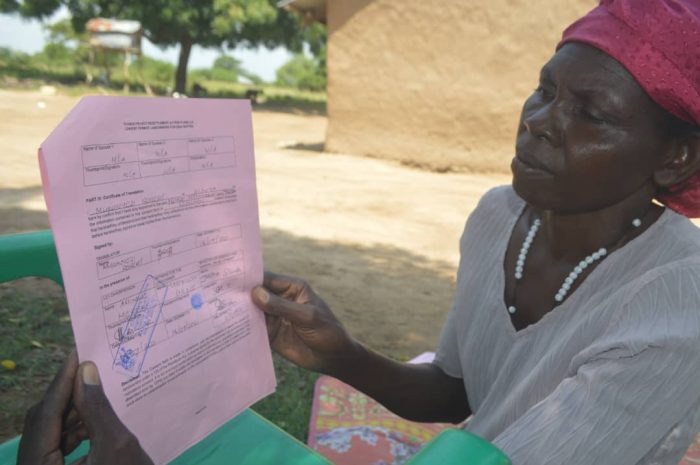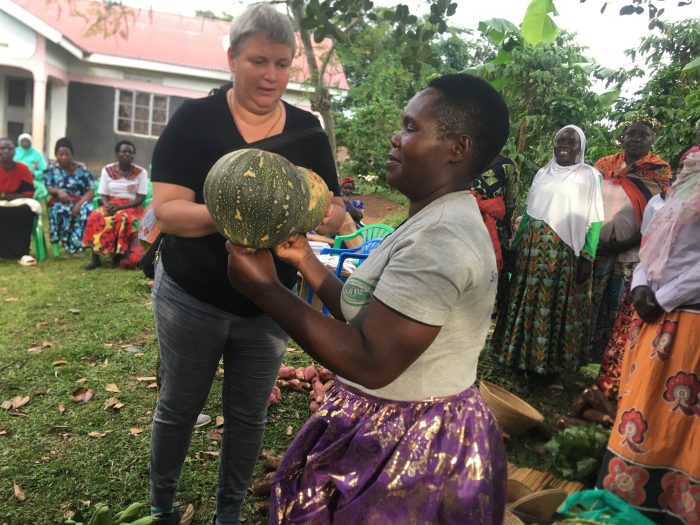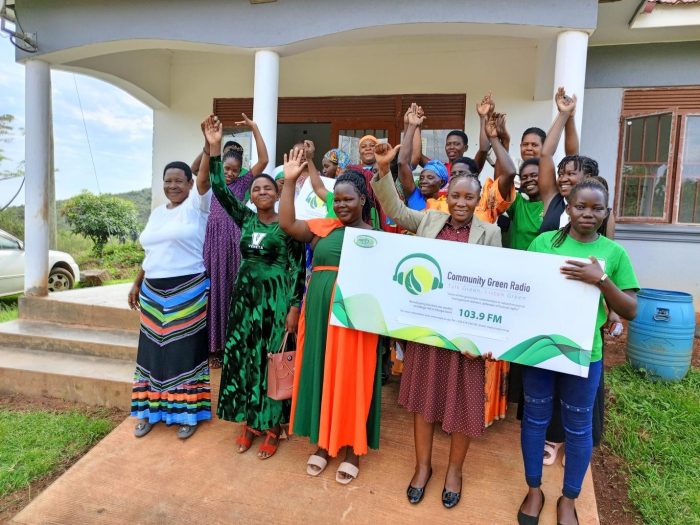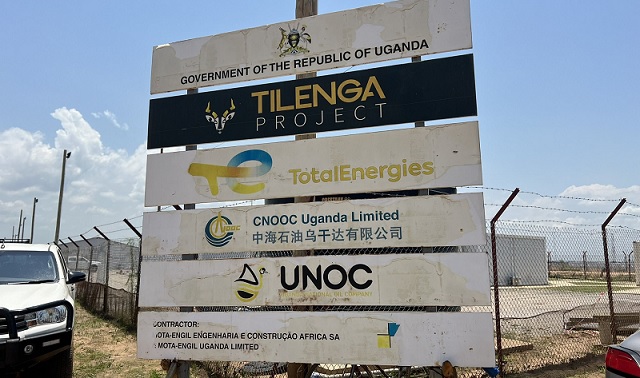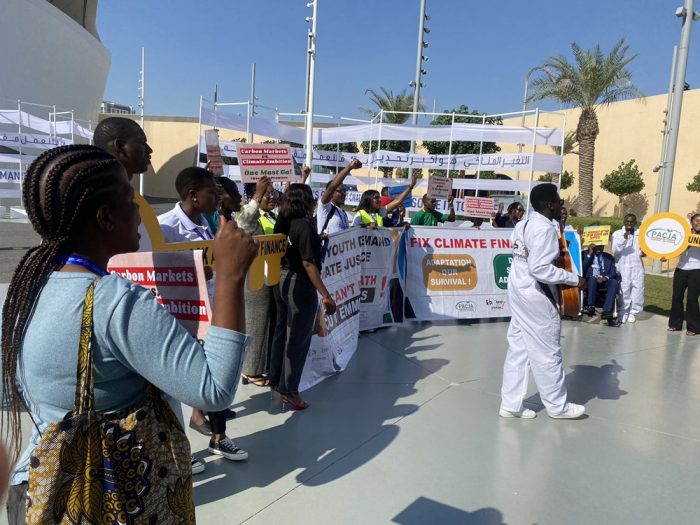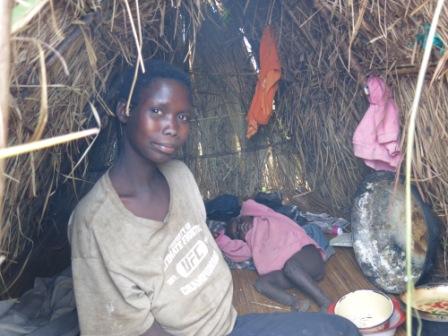
High court Masindi district in Western Uganda has indefinitely postponed the hearing of the Rwamutonga case where more than 250 families were brutally evicted to pave way for the construction of oil waste treatment plant.
Justice Albert Rugadya Atwoki, High Court resident judge Masindi was expected to give a ruling on an application on January 19, 2017 but he informed court that he would make a ruling on notice.
According to Bashir Twesigye, Executive Director Civic Response on Environment and Development, the judge’s move to make his ruling on notice shows that the judge is not comfortable with the case hence the hesitation to make a decisive ruling.
“Hon. Justice Rugadya should not have any excuse ruling on the case because he has had six months to study the case. The judge making a ruling on notice means that he will make a decision when he feels ready” he argued.
Since the first ruling was done last year, this second ruling would give the evictees a mileage and has been pending for long.
The families were evicted in August 2014 from the two pieces of land; one titled in the names of Robert Bansigaraho and another in Joshua Tibagwa. The affected families have since been living in Kakopo Internally Displaced Persons camp (IDP) with no stable source of livelihood.
Nelson Atich, Bugambe sub county Councilor and representative of the evictees told Community Green Radio, that they were shocked by the judge’s decision to make the ruling on notice. “We are now thinking of petitioning the Principal Judge over this matter,” he stated.
“When we went to court on 19th, January, 2017, we were surprised when the clerk to the judge told us that the judge will give us the ruling on notice. We are in a dilemma, but we think we are not getting justice from courts of law,” Atich said.
He further added that the evicted families have been living in a camp for close to three years now under inhuman conditions yet the case has not been given priority.
According to sources privy to court, the ruling was meant to be given on December 8, 2016 but was postponed to January 19, 2017.
Last year, the then resident judge Masindi Justice Simon Byabakama, who has since moved to the country’s Electoral Commission as its head ruled that 53 families out of the 250 families affected were illegally evicted on land owned by Robert Bansigaraho since the eviction court order was issued in error.
“The eviction was unlawful and should not have happened in the first place because at the time of the execution of the warrant of vacant possession, there was an ongoing suit to determine true ownership of the land,” ruled Justice Simon Byabakama last year.
Justice Byabakama in his ruling also ordered Bansingaraho to compensate the evictees for the unlawful eviction. Following the immense pressure from NAPE and other civil society organizations, Bansigaraho accepted mediation by Justice Centers Uganda and handed over the piece of land to the 53 families.
In their application, the evictees, through their lawyers Iam Musinguzi of Musinguzi and Co. Advocates and Jonathan Okiria, an advocate with Justice Centers Uganda in Hoima are seeking a declaration that the families were unlawfully evicted by Tibagwa Joshua and should be awarded compensation.
In November 2016, Betty Amongi, Minister of lands visited Rwamutonga camp and appointed a probe committee to investigate and establish the rightful owners of the disputed land.
According to Isaac Kawooya, Hoima Resident District Commissioner, the committee finalized its investigations and has submitted a report to the minister. Kawooya says the judiciary should objectively look at the matter in folds to determine whether all evictees are genuine occupants.
Meanwhile over 17 children have died and close to 100 others are suffering from severe malnutrition at Kigyayo camp in Kiziranfumbi sub-county, Hoima District following a forceful land eviction two years back. On 28th February 2015, about 5000 people were evicted from 1860 hectare piece of land in Kiziranfumbi after it was leased to an investor Hoima Sugar Limited for sugarcane plantation. Namara Scovia, a 7 year old girl is the latest child to succumb to severe malnutrition while at the camp.
Kigyayo camp is located approximately 40 km away from Hoima town and about 7 km away from Kiziranfumbi sub-county headquarters. The 4 acre piece of land where the group is currently residing belongs to Church of Uganda.
According to Buryahika Stephen, head of Kigyayo Internally Displaced People’s camp, Namara is not the only child who has lost her life due to malnutrition. Many others between the ages of one to seven years have died due to malnutrition and lack of proper feeding.
“At the camp, we depend on charity! We are now living like homeless people because everyone wants to get rich from this oil,” Buryahiko narrates, adding that the discovery has brought more harm than good.
He further adds that sadly, the 68 others including the elderly people will suffer the same fate if no urgent attention is rendered to them.
Benon Tusingwire, Executive Director Navigators of Development Association, a local community based organization notes that the camp has only two clinics which appear to be slack since the community members cannot afford UGX 30,000 to acquire treatment for their children.
According to Buryahika, the land in question is claimed by Kimera Herbert; a local tycoon (now deceased) who is using a different land title to evict them.
“Kimera claimed he owned this land but it is not true. He used a land title for some 10 ha piece of land to evict,” Buryahika revealed in a recent interface meeting when NAPE and Community Green Radio staff visited the camp.
On 4th July 2014, the High Court of Uganda issued an interim order restraining the respondent (Kimera Herbert) from “erasing, demolishing or destroying the existing gardens and structures of the applicant but is at liberty to carry out his activities on the undeveloped part of the suit land.”
The land dispute in Kiziranfumbi started in 2012 when the late Kimera threatened to evict the residents branding them as ‘squatters.’’ Further investigations reveal that the community upon receiving the eviction threats filed a court case at the Masindi Magistrate court to halt any evictions.
According to Nkunzi Tanazio, 31 and father to late Namara, the land under dispute is a communal land and has been his home for the last 16 years. According to Buryahika, the community in their file demands UGX 108bn as compensation from the investor.
In a recent report launched by Transparency International, oil based investment and its associated benefits have inspired an unprecedented amount of land grabbing in the region with powerful rich elite and District land board officials fraudulently acquiring land titles over communal lands.
Such loopholes leave bad precedents in the judicial sectors, especially when the big fish use temples of justice and police to unleash terror against innocent Ugandans.
Records in the office the Resident District Commissioner, Hoima so far indicate over 1000 households have been affected by illegal land evictions either directly or indirectly between the year 2012 and 2016.RDC Kawooya says only 30% of these victims have accessed court for justice, while others either have no access or are intimidated by their tormentors.
Story compiled by Robert Katemburura Turyomurugyendo,
Editor NAPE Community Green Radio, Hoima District

